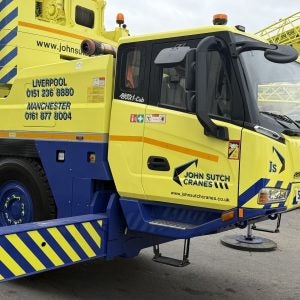New York State issues crane operator certificates on the basis of three years experience, a written exam, and a practical test (New York City has its own licensing process). The state doesn’t, however, specify a pass mark for the test, or have a written procedure for how the test should be conducted. Crane Board members considered a passing mark to be 65 or 70 out of 100.
Fazzio had been at the centre of the certification process from 1984, when he was appointed as an associate safety and health inspector and been made responsible for issuing certificates. At around the same time, he became a member of the Crane Board. In 1994, Fazzio was made supervisor of the Licensing and Certification Unit, which issues certificates based on Crane Board recommendations. In 1997, he was promoted to the position of programme manager within the Public Employee Safety and Health Bureau.
At this point, responsibility for managing key elements of the certification process should have passed to his former assistant Kevin Kilrain, who took over as Licensing and Certification Unit supervisor. However, Fazzio continued to take responsibility for the certification process, telling Kilrain which operators had passed exams.
This practice continued until 2000, when Martha Waldman took over a Licensing and Certification Unit supervisor. When Fazzio attempted to collect the score sheets from a practical exam, Waldman challenged him. The two argued, but Fazzio accepted that it was Waldman’s responsibility to collect score sheets.
The first signs of a problem with the process came in 2002, when Waldman was checking certificate renewal applications. Operators must apply to have certificates renewed every three years. Waldman told investigators that two of the certificates had been issued to operators who had scored less than 65 out of 100 on their practical exams. Waldman did not issue a renewal to these two.
Further problems with the certification process under Fazzio’s control were spotted in 2004, when Department of Labour officials were informed by Waldman that 42 certificates had been issued to operators who had failed their practical exams. The officials told investigators that they could not recall this.
Matters came to a head in 2007. On February 22, an applicant complained that they had been denied an operator’s certificate because they were not a member of the IUOE (the International Union of Operating Engineers, the union for plant operators). The applicant also complained of pressure from union members, including two who served on the Crane Board. On April 13, the complainant expressed dissatisfaction with the Department of Labor’s response. His complaints were passed to the Inspector General’s office. The Inspector General’s office began investigating the allegations towards the end of May.
During their investigation into practices at the Crane Board, the Inspector General’s investigators examined certificates issued by the board. The investigators identified 142 certificates that had been issued improperly between October 1985 and April 2000 (roughly the period during which Fazzio was formally responsible for the certification process, or improperly assumed responsibility for key elements of its management).
Of the 142 certificates that had been issued to applicants who had failed practical exams, 129 were still active. The Inspector General notified the Department of Labor, and, after a brief internal investigation, all of the active certificates were revoked, on 26 November. A further 69 certificates were revoked shortly afterwards. Operators who had been issued the certificates without a passing mark in the practical were offered the opportunity to take the practical exam again. As of April 2, 75 had retaken the test, and 38 had passed it.






